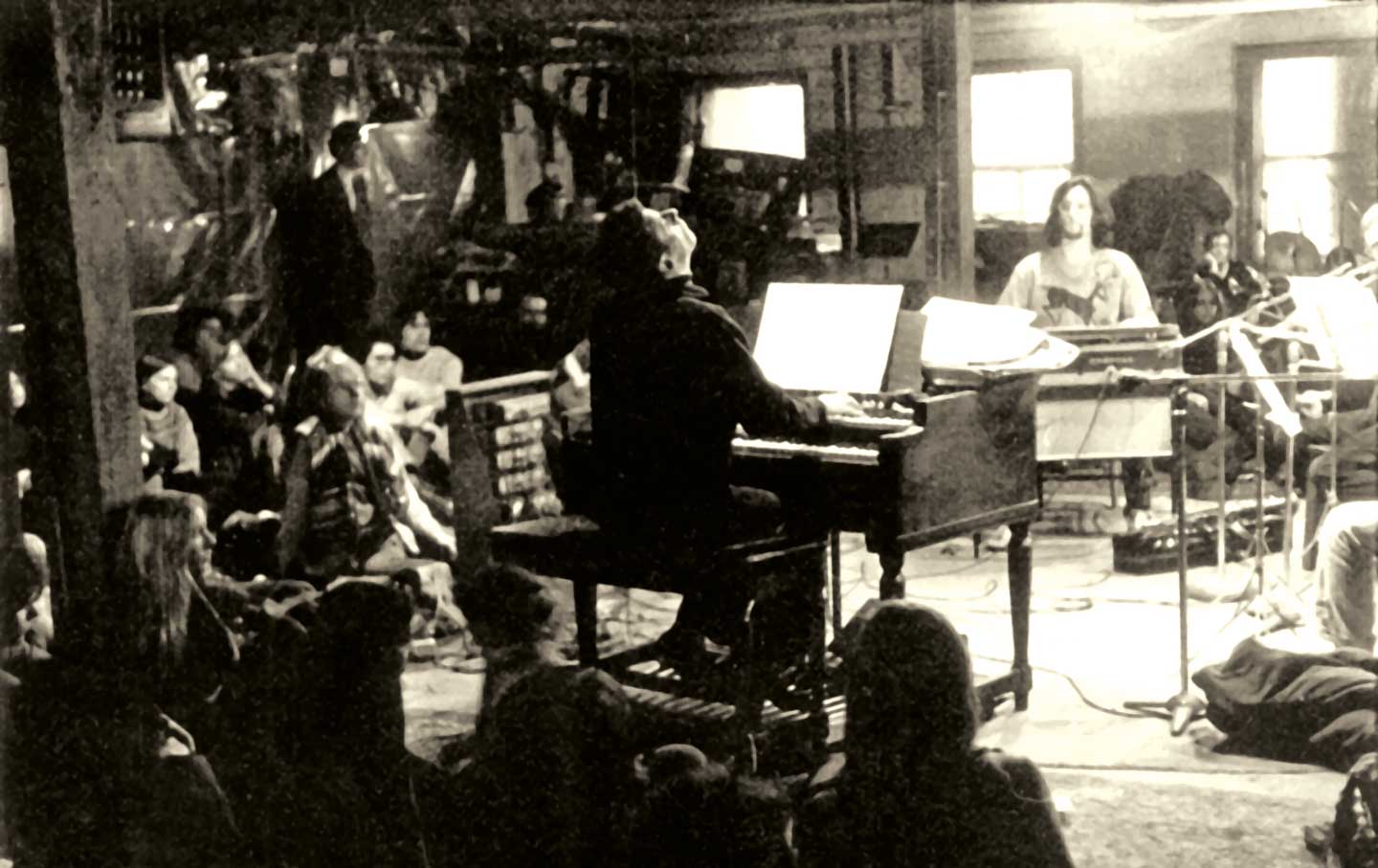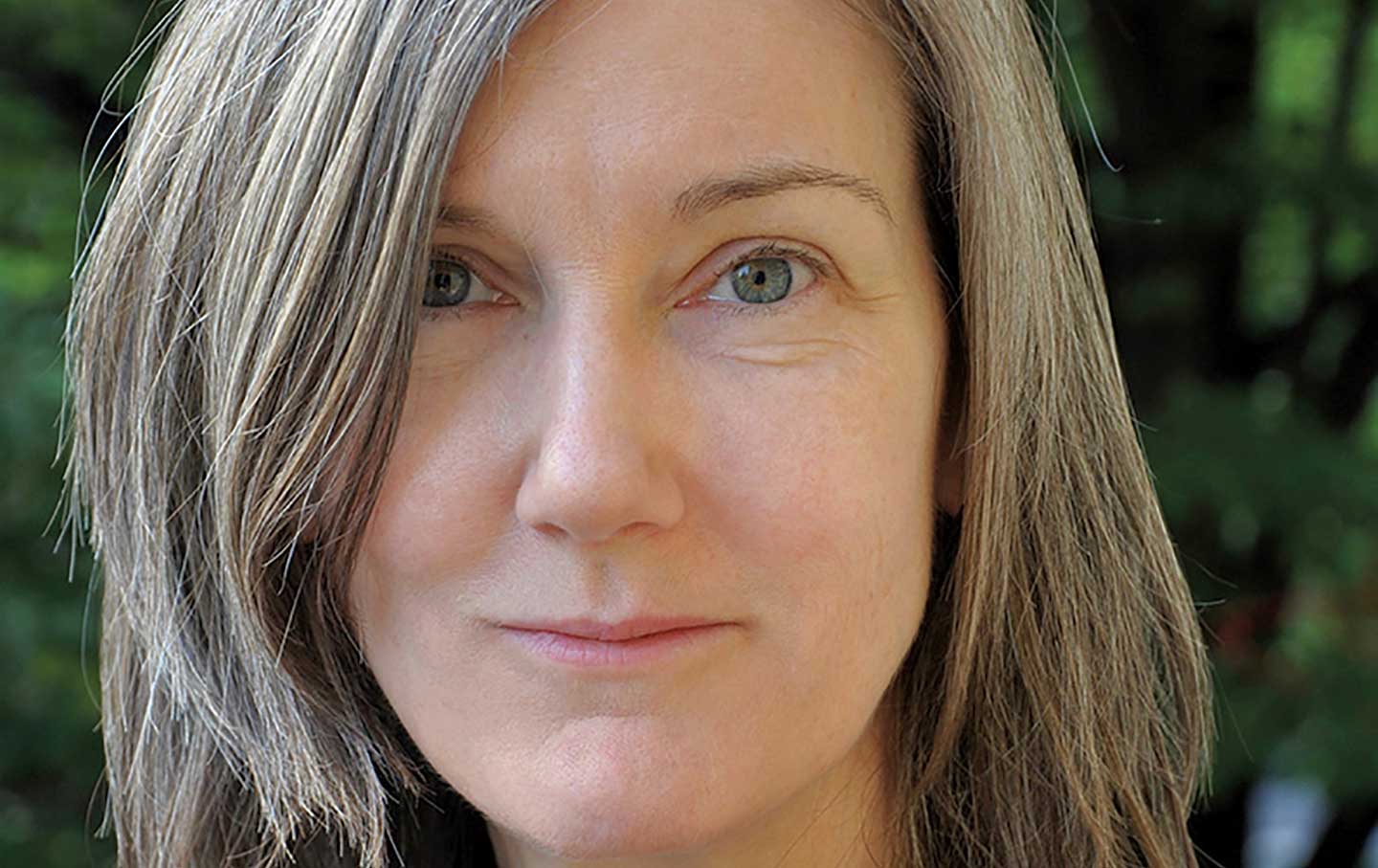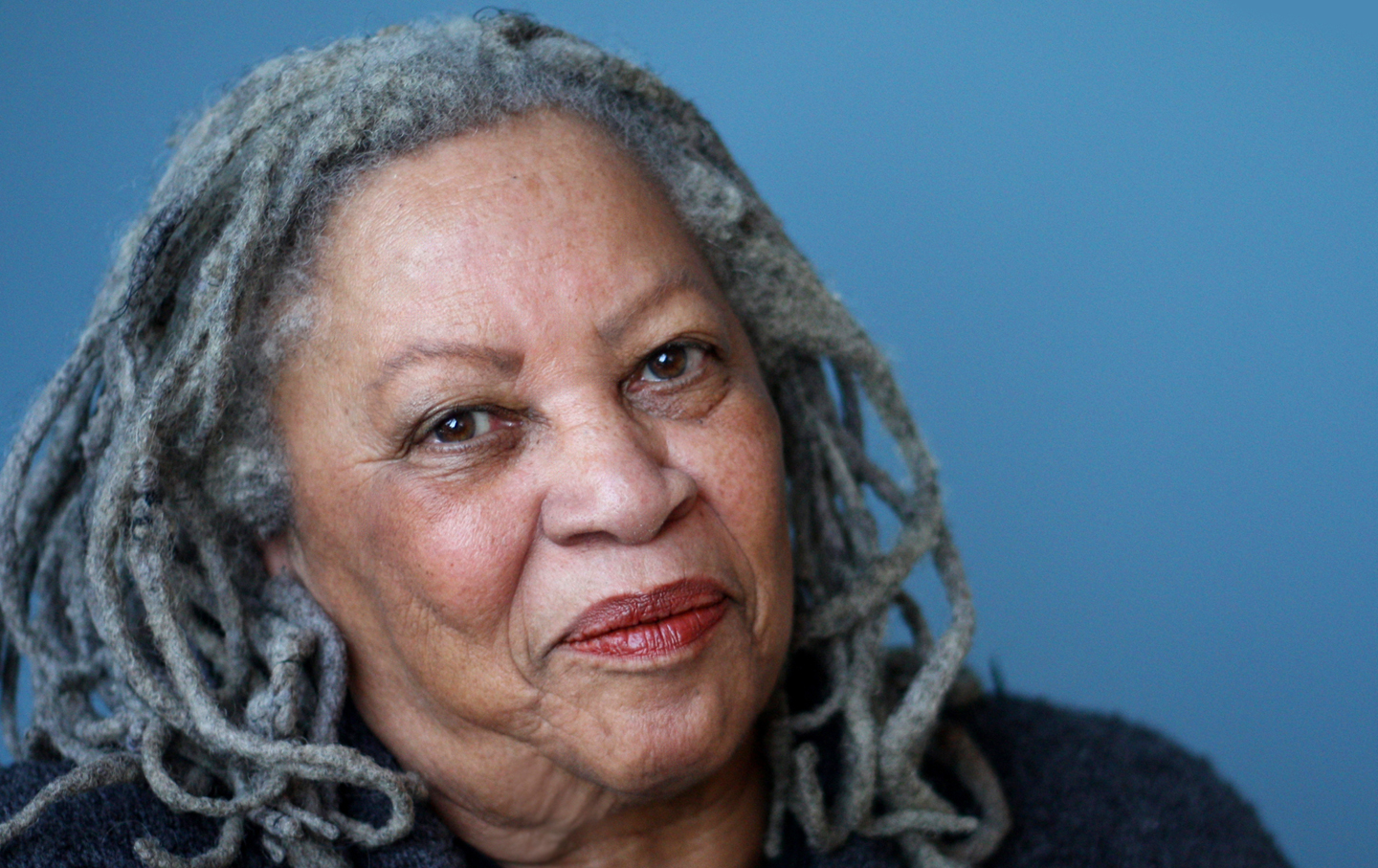
Words for Music Perhaps Words for Music Perhaps
Warm and unaffected, Philip Glass’s memoir is nothing like his music.
Apr 14, 2015 / Books & the Arts / David Hajdu

How to Die How to Die
Atul Gawande argues that physicians should focus care on the good life—including its very end.
Apr 14, 2015 / Books & the Arts / Sophia Rosenfeld
Pinwheel Pinwheel
In the back of my classroom stands Blake’s car Bearing Dante’s blest Beatrice; In martial middle, ranked desks, each Packing a lexicon in undercarriage; On one book’s pressed pages, surprise!—a raised Nazi swastika. Find the kid who did it, turn him in to turn Him out? Or claim “a teaching moment,” Redeem the inditer, if woe Like that might ever be removed, might ever Cease being banal? Maybe one should give Credit—extra—for burning Hate not on synagogue wall or lav stall, But on language itself, on thought, A ready reference, a wrought Consciousness, edginess? Perhaps one must Pass on the sinner instead, deal with just The sin, that is, in all Literalness—save at least time and trouble, Change what can be changed, blacken out The offense with more ink (no doubt A “cover-up,” but what the hell)? Would “Wite- Out” be better? Or the ultimate hit, Scissor snipping, eh, bubba? We mouth each day, “…with liberty and justice For all,” and study Douglass, Twain, Truth, Addams, Joseph, Peltier, Tan, Cisneros, King, and on, but to what end? The Indian benediction is bent Backwards, blessing made curse, Love made hate, again and again, a wheeling Known all too well. Wheel, whorl, Blake-Dante Vortex, spirit-world spinning on, Esti, asti, ist, is… This then: add four More arms, close the figure, window it. More Pinwheel, if you will. Still.
Apr 14, 2015 / Books & the Arts / Rod Kleber

Shelf Life Shelf Life
In Nell Zink’s The Wallcreeper, biology fails to determine anything at all.
Apr 14, 2015 / Books & the Arts / Hannah Gold

No Place for Self-Pity, No Room for Fear No Place for Self-Pity, No Room for Fear
In times of dread, artists must never choose to remain silent.
Mar 23, 2015 / Feature / Toni Morrison
Present Present
December 28, 1964 The stranded gulch below Grand Central the gentle purr of cab tires in snow and hidden stars tears on the windshield torn inexorably away in whining motion and the dark thoughts which surround neon in Union Square I see you for a moment red green yellow searchlights cutting through falling flakes, head bent to the wind wet and frowning, melancholy, trying I know perfectly well where you walk to and that we’ll meet in even greater darkness later and will be warm so our cross of paths will not be just muddy footprints in the morning not like celestial bodies’ yearly passes, nothing pushes us away from each other even now I can lean forward across the square and see your surprised grey look become greener as I wipe the city’s moisture from your face and you shake the snow off onto my shoulder, light as a breath where the quarrels and vices of estranged companions weighed so bitterly and accidentally before, I saw you on the floor of my life walking slowly that time in summer rain stranger and nearer to become a way of feeling that is not painful casual or diffuse and seems to explore some peculiar insight of the heavens for its favorite bodies in the mixed-up air This article is part of The Nation’s 150th Anniversary Special Issue. Download a free PDF of the issue, with articles by James Baldwin, Barbara Ehrenreich, Toni Morrison, Howard Zinn and many more, here. This poem by Frank O’Hara (1926–1966) was published the same year his collection Lunch Poems brought him to fame.
Mar 23, 2015 / Books & the Arts / Frank O’Hara
Two Views of a Cadaver Room Two Views of a Cadaver Room
January 30, 1960 I The day she visited the dissecting room They had four men laid out, black as burnt turkey, Already half unstrung. A vinegary fume Of the death vats clung to them; The white-smocked boys started working. The head of his cadaver had caved in, And she could scarcely make out anything In that rubble of skull plates and old leather. A sallow piece of string held it together. In their jars the snail-nosed babies moon and glow. He hands her the cut-out heart like a cracked heirloom. II In Brueghel’s panorama of smoke and slaughter Two people only are blind to the carrion army: He, afloat in the sea of her blue satin Skirts, sings in the direction Of her bare shoulder, while she bends, Fingering a leaflet of music, over him, Both of them deaf to the fiddle in the hands Of the death’s-head shadowing their song. These Flemish lovers flourish; not for long. Yet desolation, stalled in paint, spares the little country Foolish, delicate, in the lower right hand corner. This article is part of The Nation’s 150th Anniversary Special Issue. Download a free PDF of the issue, with articles by James Baldwin, Barbara Ehrenreich, Toni Morrison, Howard Zinn and many more, here. Sylvia Plath (1932–1963) published four poems in The Nation between 1955 and 1960.
Mar 23, 2015 / Books & the Arts / Sylvia Plath
The Bear The Bear
April 18, 1928 The bear puts both arms round the tree above her And draws it down as if it were a lover And its choke-cherries lips to kiss goodby, Then lets it snap back upright in the sky. Her next step rocks a boulder on the wall. (She’s making her cross-country in the fall.) Her great weight creaks the barbed wire in its staples As she flings over and off down through the maples, Leaving on one wire tooth a lock of hair. Such is the uncaged progress of the bear. The world has room to make a bear feel free. The universe seems cramped to you and me. Man acts more like the poor bear in a cage That all day fights a nervous inward rage, His mood rejecting all his mind suggests. He paces back and forth and never rests The toe-nail click and shuffle of his feet, The telescope at one end of his beat, And at the other end the microscope, Two instruments of nearly equal hope, And in conjunction giving quite a spread. Or if he rests from scientific tread, ’Tis only to sit back and sway his head Through ninety-odd degrees of arc it seems, Between two metaphysical extremes. He sits back on his fundamental butt With lifted snout and eyes (if any) shut (He almost looks religious but he’s not), And back and forth he sways from cheek to cheek, At one extreme agreeing with one Greek, At the other agreeing with another Greek, Which may be thought but only so to speak. A baggy figure equally pathetic When sedentary and when peripatetic. This article is part of The Nation’s 150th Anniversary Special Issue. Download a free PDF of the issue, with articles by James Baldwin, Barbara Ehrenreich, Toni Morrison, Howard Zinn and many more, here. Reviewing Robert Frost’s first book, A Boy’s Will, in 1915, The Nation described him as “a poet by endowment,” but “a symbolist only by trade.” Frost (1874–1963) wrote four poems for The Nation in the 1920s. When he died, the sportswriter Roger Kahn wrote in the magazine of his friend: “Robert Frost is dead and my mortality and yours is thus more stark.”
Mar 23, 2015 / Books & the Arts / Robert Frost
The Fall of Rome The Fall of Rome
June 14, 1947 The piers are pummeled by the waves; In a lonely field the rain Lashes an abandoned train; Outlaws fill the mountain caves. Fantastic grow the evening gowns; Agents of the Fisc pursue Absconding tax-defaulters through The sewers of provincial towns. Private rites of magic send The temple prostitutes to sleep; All the literati keep An imaginary friend. Cerebrotonic Cato may Extol the Ancient Disciplines, But the muscle-bound Marines Mutiny for food and pay. Caesar’s double-bed is warm As an unimportant clerk Writes I DO NOT LIKE MY WORK On a pink official form. Unendowed with wealth or pity, Little birds with scarlet legs, Sitting on their speckled eggs, Eye each flu-infected city. Altogether elsewhere, vast Herds of reindeer move across Miles and miles of golden moss, Silently and very fast. This article is part of The Nation’s 150th Anniversary Special Issue. Download a free PDF of the issue, with articles by James Baldwin, Barbara Ehrenreich, Toni Morrison, Howard Zinn and many more, here. W.H. Auden (1907–1973) contributed many poems and critical essays to The Nation between 1938 and 1951.
Mar 23, 2015 / Books & the Arts / W.H. Auden
Hound Voice Hound Voice
December 10, 1938 Because we love bare hills and stunted trees And were the last to choose the settled ground, Its boredom of the desk or of the spade, because So many years companioned by a hound, Our voices carry; and though slumber bound, Some few half wake and half renew their choice, Give tongue, proclaim their hidden name—“hound voice.” The women that I picked spoke sweet and low And yet gave tongue. “Hound Voices” were they all. We picked each other from afar and knew What hour of terror comes to test the soul, And in that terror’s name obeyed the call, And understood, what none have understood, Those images that waken in the blood. Some day we shall get up before the dawn And find our ancient hounds before the door, And wide awake know that the hunt is on; Stumbling upon the blood-dark track once more, That stumbling to the kill beside the shore; Then cleaning out and bandaging of wounds, And chants of victory amid the encircling hounds. This article is part of The Nation’s 150th Anniversary Special Issue. Download a free PDF of the issue, with articles by James Baldwin, Barbara Ehrenreich, Toni Morrison, Howard Zinn and many more, here. William Butler Yeats (1865–1939) published his first poem in The Nation in 1933; his last appeared three months after his death.
Mar 23, 2015 / Books & the Arts / William Butler Yeats
